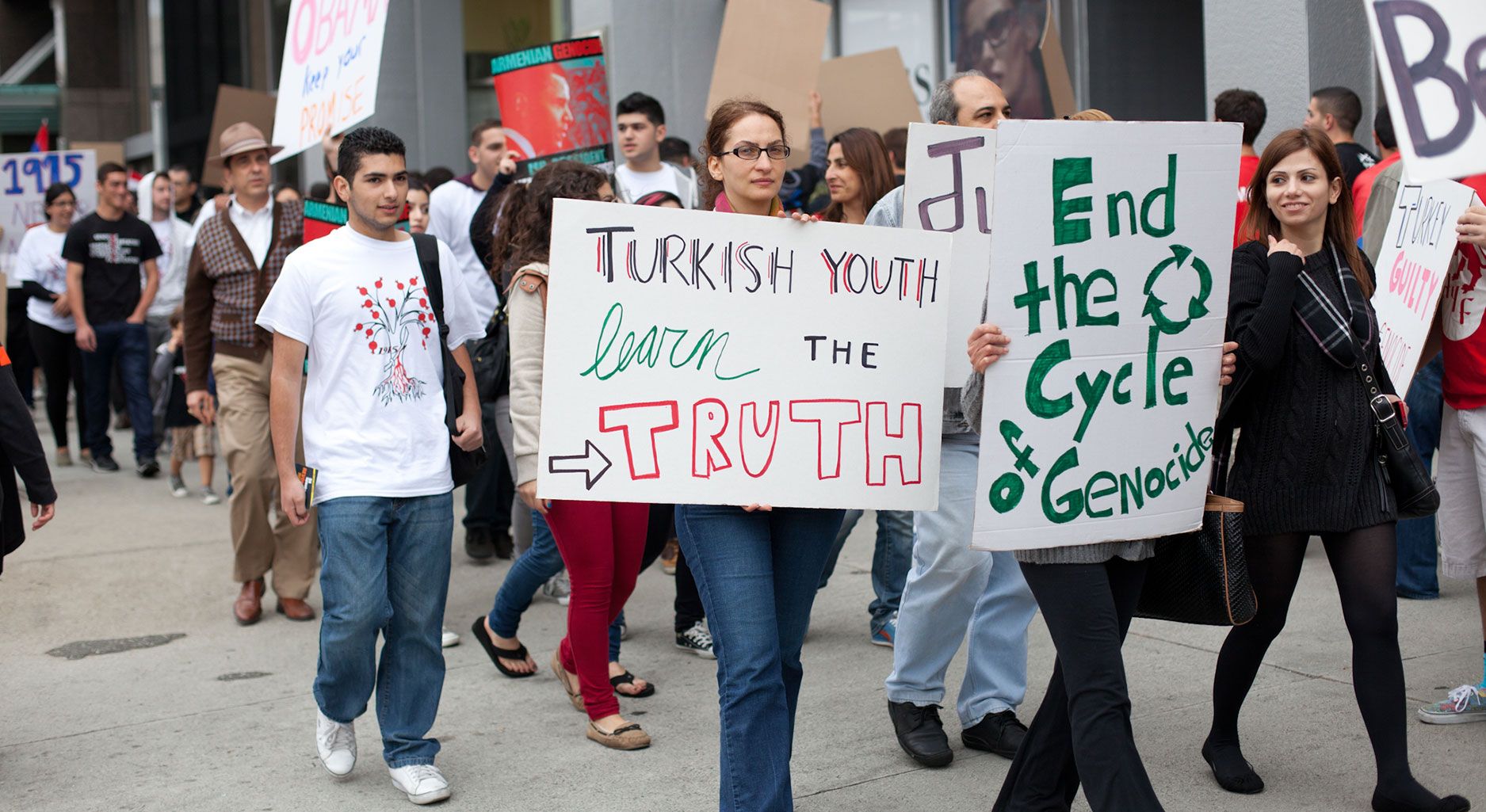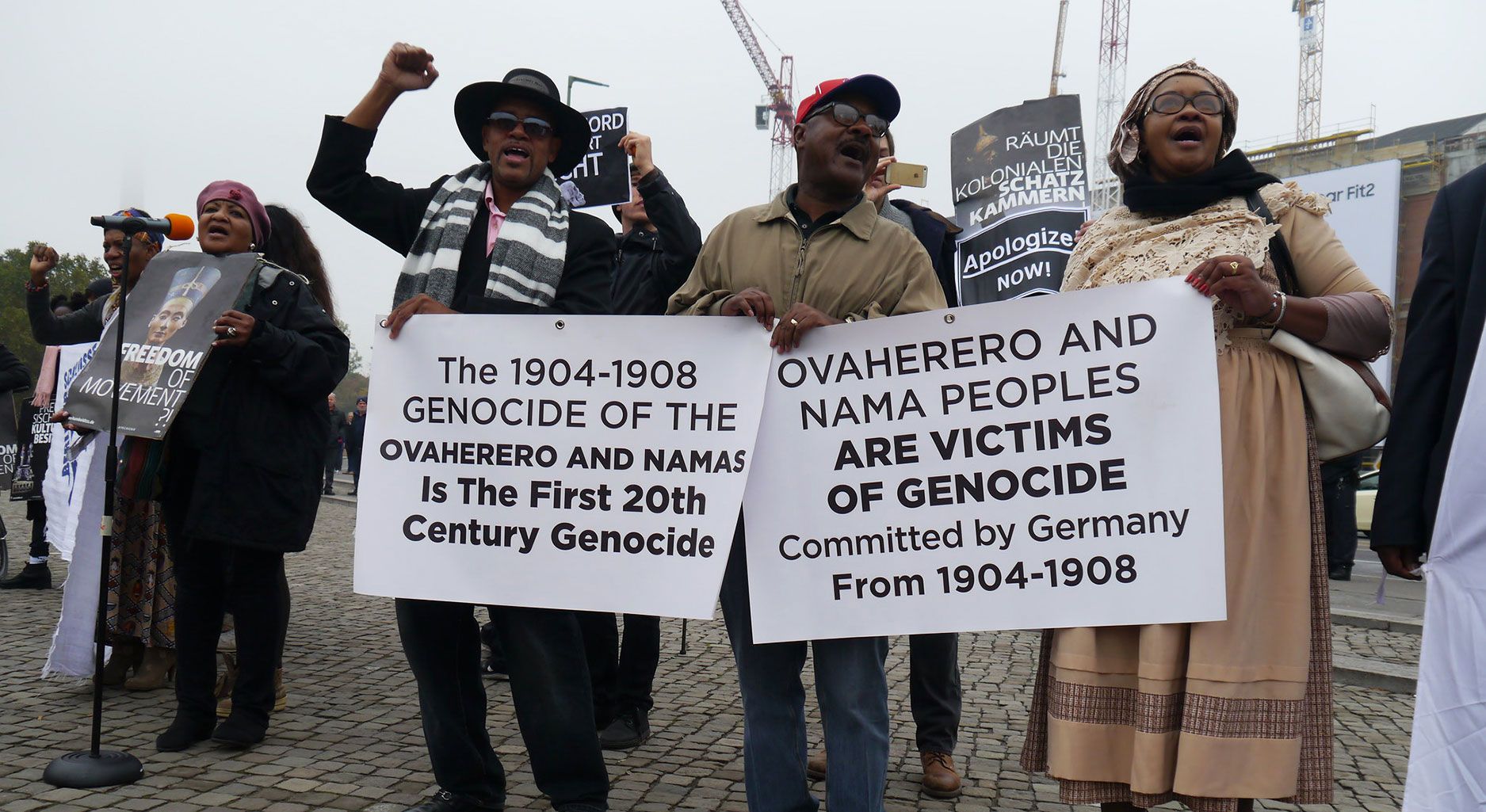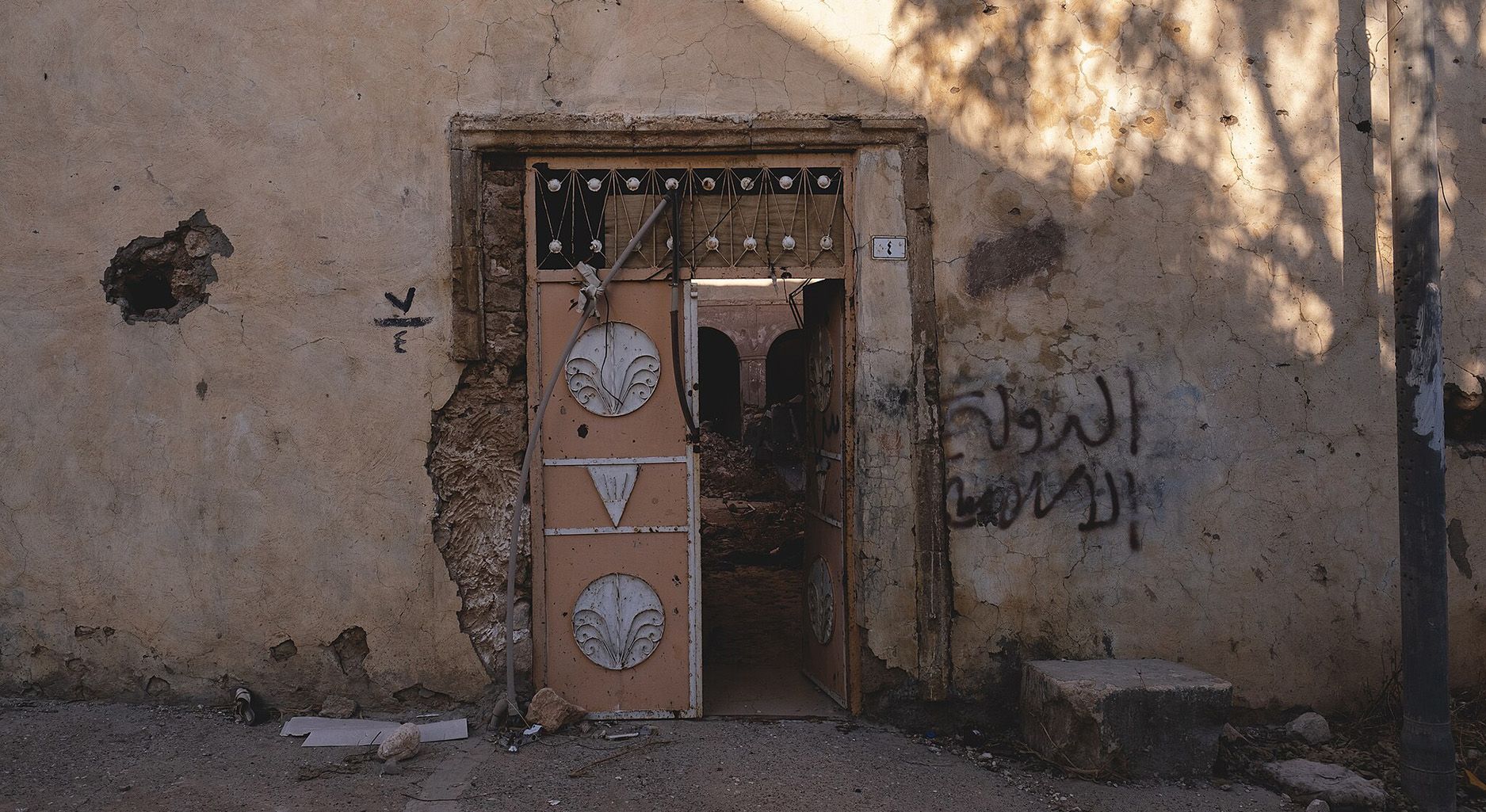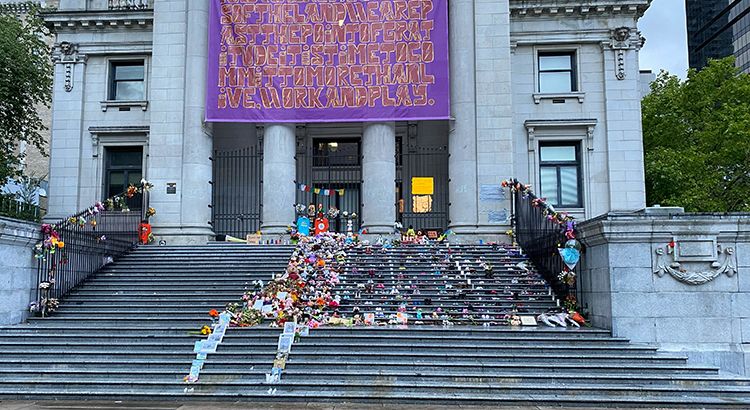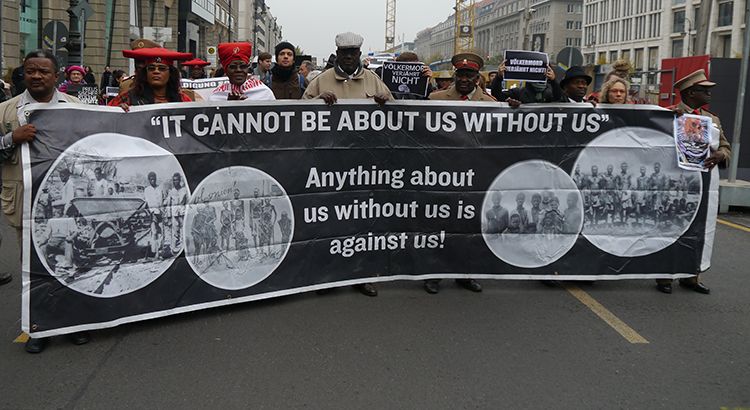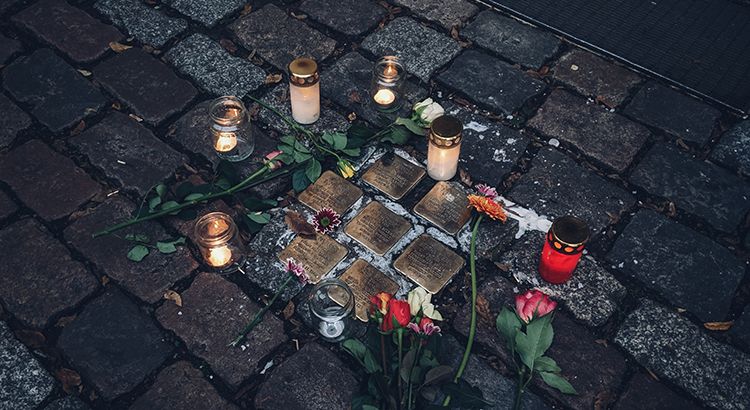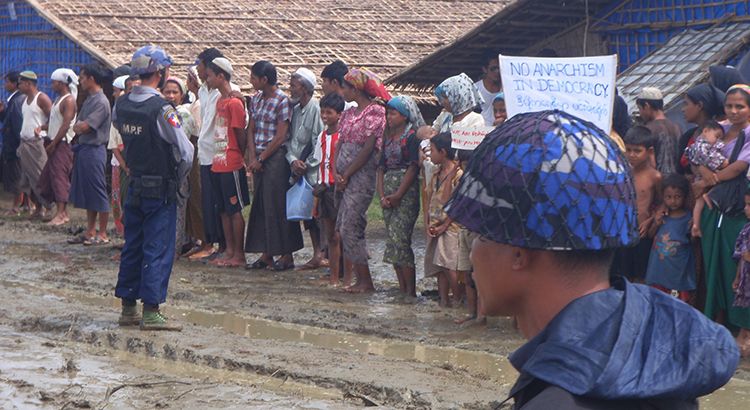Schlagwort: Genozid
As the world marks the 110th anniversary of the Armenian Genocide on 24 April 2025, the enduring power of denialism continues to shape how the Genocide is remembered—or deliberately forgotten. Since the centennial in 2015, Turkey has significantly altered its denial policy in response to evolving international norms surrounding the recognition of the Armenian Genocide.
Es steht schlecht um die namibisch-deutsche Versöhnung und die koloniale Aufarbeitung
Die gemeinsame Erklärung der Bundesregierung und der namibischen Regierung zur kolonialen Aufarbeitung scheint vor dem Aus zu stehen. Nachdem die Verhandlungen 2021 mit der Formulierung der gemeinsamen Erklärung zunächst Fortschritte erzielten, scheint sich nun wegen der vorgezogenen Wahlen das Zeitfenster für ihre Verabschiedung in Deutschland zu schließen. Damit ist zu erwarten, dass auch der 2015 von der großen Koalition begonnene staatliche Versöhnungsprozess stagniert bzw. sein Ende gefunden haben könnte. Zu einem Wahlkampfgegenstand scheint jedenfalls derzeit keine Partei das Thema machen zu wollen. Dass eine neue Regierung unter christdemokratischer Führung nochmals eine Initiative wagt, darf bezweifelt werden. Wie kam es dazu?
Zehn Jahre nach dem Genozid: Die fortdauernde Krise der Jesiden
Am 3. August jährt sich der zehnte Jahrestag des Völkermords, den die radikal-religiöse Terrororganisation Islamischer Staat (IS) vor einem Jahrzehnt an den Jesiden im Irak verübte. Keine andere Gruppe erlebte die Gräueltaten des IS so direkt wie die Jesiden. Trotz der militärischen Niederlage des IS und der Rückeroberung der jesidischen Gebiete dauert ihr Leiden an. Angesichts anderer globaler Konflikte wie dem Ukraine-Krieg und dem Israel-Gaza-Konflikt geraten die anhaltenden Leiden der Jesiden zunehmend aus dem Blick. Dieser Blogartikel erläutert den Kontext und die Gründe, warum die Bedrohung der Jesiden nach wie vor anhält.
Israel–Gaza Beyond the Concept of Genocide: End Mass Violence Against Civilians Now
German debates about the Israel-Gaza war often get caught up in polarising terminology. This applies in particular to the dispute whether a genocide is occurring. Apart from the legal assessment currently being made by the International Court of Justice, a parallel, polemical discussion about the concept of genocide distracts from actual priorities for action. The war has already cost tens of thousands of lives, and many more Palestinians will die as a direct and indirect consequence of the war. The mass violence against civilians and the destruction of conditions of life in Gaza must end immediately – regardless of whether the legal conditions for genocide are met.
Israel-Gaza jenseits des Genozid-Begriffs: Massengewalt gegen Zivilist*innen jetzt beenden
Deutsche Debatten über den Israel-Gaza-Krieg verfangen sich oft in polarisierenden Begrifflichkeiten. Das gilt insbesondere für den Streit um das Vorliegen eines Genozids. Abgesehen von der juristischen Einschätzung, die derzeit der Internationale Gerichtshof vornimmt, lenkt eine parallellaufende, polemische Diskussion um den Völkermordsbegriff von den eigentlichen Handlungsprioritäten ab. Der Krieg kostete schon Zehntausende das Leben, noch viel mehr Palästinenser:innen werden an direkten und indirekten Kriegsfolgen sterben. Die Massengewalt gegen Zivilist:innen und der Entzug von Lebensgrundlagen in Gaza müssen sofort beendet werden – unabhängig davon, ob juristisch die Bedingungen für einen Genozid erfüllt sind.
Kanadas Genozid an den First Nations: Der Aufarbeitungskonflikt braucht Recht und Politik
Erst legten Trauernde Kinderschuhe vor das kanadische Parlament, für jedes der über 1000 Kinderskelette eines. Danach brannten Kirchen. Nachdem in Kanada in der Nähe von christlichen Umerziehungsschulen sterbliche Überreste indigener Kinder gefunden wurden, wird erneut über die kanadische Kolonialpolitik diskutiert. Bereits 2015 hat eine Untersuchungskommission festgestellt, dass ein kultureller Genozid an den First Nations des heutigen Kanadas begangen wurde. Wie kann der Staat das begangene Unrecht aufarbeiten? Welche Möglichkeiten bietet das internationale Recht zur Konfliktbewältigung? Das kürzlich gewählte kanadische Parlament steht jetzt in der Verantwortung, konkrete politische Aussöhnungsmaßnahmen zu ergreifen und zugleich juristische Wege der Aufarbeitung weiterzuentwickeln.
Warum dringen Krisenwarnungen nicht durch? Vier Eigenschaften, die Warnungen vor Massenverbrechen erfüllen sollten
Die Früherkennung und die Prävention von Massenverbrechen sind eine große Herausforderung. Es mangelt meist nicht an Warnungen, die insbesondere von Akteuren aus der Zivilgesellschaft formuliert werden. Daher wird oft angenommen, es liege an mangelndem politischen Willen, dass auf die Warnungen keine präventiven Maßnahmen folgen. Wie dieser Blog zeigt, können aber auch die zivilgesellschaftlichen Akteure selbst einiges dafür tun, um die Qualität ihrer Arbeit zu steigern und von Entscheidungsträger*innen gehört zu werden.
Gut gemeint genügt nicht: Die Aussöhnung mit Namibia braucht die Zustimmung lokaler Opfergruppen
Seit Jahren hat Deutschland mit Namibia über ein Aussöhnungsabkommen verhandelt, das die kolonialen Gewalttaten an Herero und Nama im damaligen Deutsch-Südwestafrika als Völkermord anerkennt und eine Entschuldigung für das Verbrechen mit finanziellen Hilfen für Wiederaufbau und Entwicklung verbindet. Im Mai 2021 wurde das erfolgreiche Ende der Verhandlungen verkündet. Während die Regierungen beider Länder ihre Einigung als Meilenstein der Aufarbeitung sehen und bereits präsidiale Festakte planen, fallen die Reaktionen der namibischen Opposition kritisch aus. Dass nur wenige handverlesene Opfervertreter*innen in den Prozess einbezogen waren, sei praktizierte Apartheid. In der Tat ist fraglich, ob Versöhnung ohne einen inklusiveren Ansatz gelingen kann.
At the Age of the Pandemic: The Global Memory of the Holocaust and Armenian Genocide at a Crossroads
Over the last forty years, the Holocaust has become a distinct aspect of Western culture and a universal lesson for protection of minorities and human rights. By contrast, the Armenian genocide is still being denied by Turkey and a culture of commemoration which is lagging far behind. Beyond the reason for differences between memory practices, I argue that a stronger culture of commemoration of the Armenian genocide would have twofold benefits.
Hate speech in the context of mass atrocity crimes: How social media platforms help and hinder international criminal investigations
The May 2020 arrest of Félicien Kabuga brought an end to a manhunt spanning 26 years and two continents. The capture of the elusive alleged financier of the infamous RTLM hate speech radio station shows the importance of documenting hate speech for court proceedings if and when fugitives are eventually arrested. Today, extremist hate and atrocity speech in the context of genocide and war crimes takes place and is spread online. However, social media platforms have been slow to respond to and document it, and to cooperate with international authorities in doing so.
